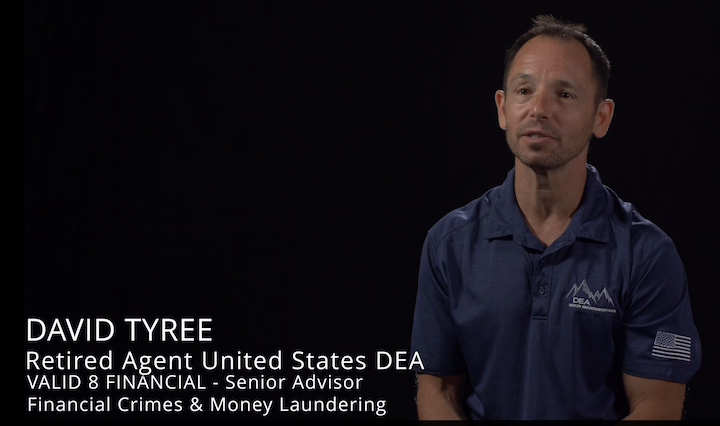The Evidence Ledger
From Candy‑Coated Crime to Courtroom Clarity: What the Hayward Drug‑Trafficking Case Teaches Us About Modern Money Flows

Image originally published by the U.S. Attorney’s Office, District of Oregon, on justice.gov/usao-or/pr
My son spent four years at Willamette University playing baseball for the Bearcats in Salem, Oregon. I enjoyed lots of long weekends watching him play and travel throughout the western U.S. For those of you who haven’t been there, Salem, in the Willamette Valley, is known for its historic charm, active arts scene, diverse population, and strong ties to agriculture.
Little did we know that while we were watching games and hitting the local brew pubs, one of the most high-profile drug trafficking operations had set up shop at a warehouse just a few miles from campus.
About Jered Hayward
Jered Hayward is what is often called a “career criminal” — he’s been prosecuted multiple times for federal drug trafficking offenses. This article is about his most recent case in which he led a large-scale, multi-state drug operation that manufactured and distributed illicit marijuana products, including THC-infused candy and cereals, as well as psilocybin mushrooms.
This case is fascinating on so many levels… and so disturbing.
The Crime Scene Looked Like a Cereal Aisle
Between 2020 and 2024, Hayward’s Salem warehouse cranked out THC‑ and psilocybin‑infused “Cinnamon Toast Crunch,” “Jolly Rancher” gummies, even faux “Lucky Charmz.”
The branding wasn’t just cute, it was purposefully devious and strategic.
Copy‑cat brand packaging can make it difficult to distinguish between legal and illicit goods, widens the customer funnel by appealing to consumers who have emotional connections with well-known brands, and—most dangerously—puts children at risk when the wrong bar winds up in a lunchbox.
Three‑Layer Corporate Camouflage
Hayward was a mastermind at hiding the truth — not just with his packaging, but also with his financial trail. He tucked the company’s operations behind that of a skincare web shop (Always Native LLC), a “bottles & tins” importer, and a small trucking company, A2Z Transport.
Why it worked:
- It provided a legitimacy veneer for payment processors and suppliers
- Multiple EINs and bank accounts sliced [CM1] the audit trail
- Freight licenses normalized large outbound shipments
Digital Payments Were the Oxygen
Digital payment platforms like Venmo, Zelle, and Cash App are increasing used by criminals to move illicit proceeds — laundering drug money or concealing profits from illegal operations. Other times, they’re used directly to pay for illicit goods and services, including drugs, prostitution, and human trafficking.
They were a major part of Hayward’s criminal subterfuge:
- 2,578 Cash App payments moved $2.4 million.
- $640k in crypto gave the team cross‑border reach and perceived anonymity.
- Old‑school cash—$906 k stuffed in a Chevelle trunk—still anchored the off‑grid stash.
Cash App and similar rails settle instantly and offer scant KYC friction. [CM2] The flip side: they also leave forensic breadcrumbs that data analysts can trace using the right tools once a subpoena lands.
Turning Profits into Hard Assets
Converting bytes into bullion is a classic money‑laundering last mile. Metals don’t flag Suspicious Activity Reports (SARs), and they ride out crypto price swings.
If you popped the Chevelle’s trunk, you’d find:
- 124 silver coins & 138 gold pieces
- Rolexes and keys to boats/yachts[GW3]
- Title to the Vista Avenue warehouse
How Investigators Finally “Followed the Money”
Seven agencies teamed up, but the heavy lift fell on IRS‑CI’s forensic accountants. They had to:
- Ingest thousands of Cash App lines, bank PDFs, and crypto‑wallet exports
- Match transfers across shell accounts
- Re‑link every dollar to an asset the court could seize
That’s weeks of labor if you do it keystroke‑by‑keystroke — which is precisely why many smaller units often let cases as complex as this one languish.
Lessons for Practitioners & Policymakers
A Quick Word on Tools
When our team built Valid8’s Verified Financial Intelligence (VFI) platform, the goal was simple: shrink the drudge work so investigators can spend time thinking, not typing.
In cases just like Hayward’s, agencies using VFI have slashed document‑prep time by 60 %+, reconciled millions of transactions, and walked into court with evidence that ties every penny back to the source — often within days instead of months.
(That’s all the airtime for product placement—back to the story.)
The Sentencing — and the Signal It Sends
Hayward drew 13 years in federal prison plus a forfeiture north of $2 million. That’s meaningful, but the bigger headline is methodological:
Digital‑first traffickers can be taken down when financial analysts get the right data, in the right format, fast enough to act.
Closing Thought
Fraudsters and traffickers will always out‑innovate statute. Our collective edge is speed to clarity: the faster we surface the full picture of money movement, the sooner we protect the public and puncture the profit motive.
Stay curious, stay data‑driven — and never overlook the stories hidden in everyday details, even on the back of a cereal box.



















